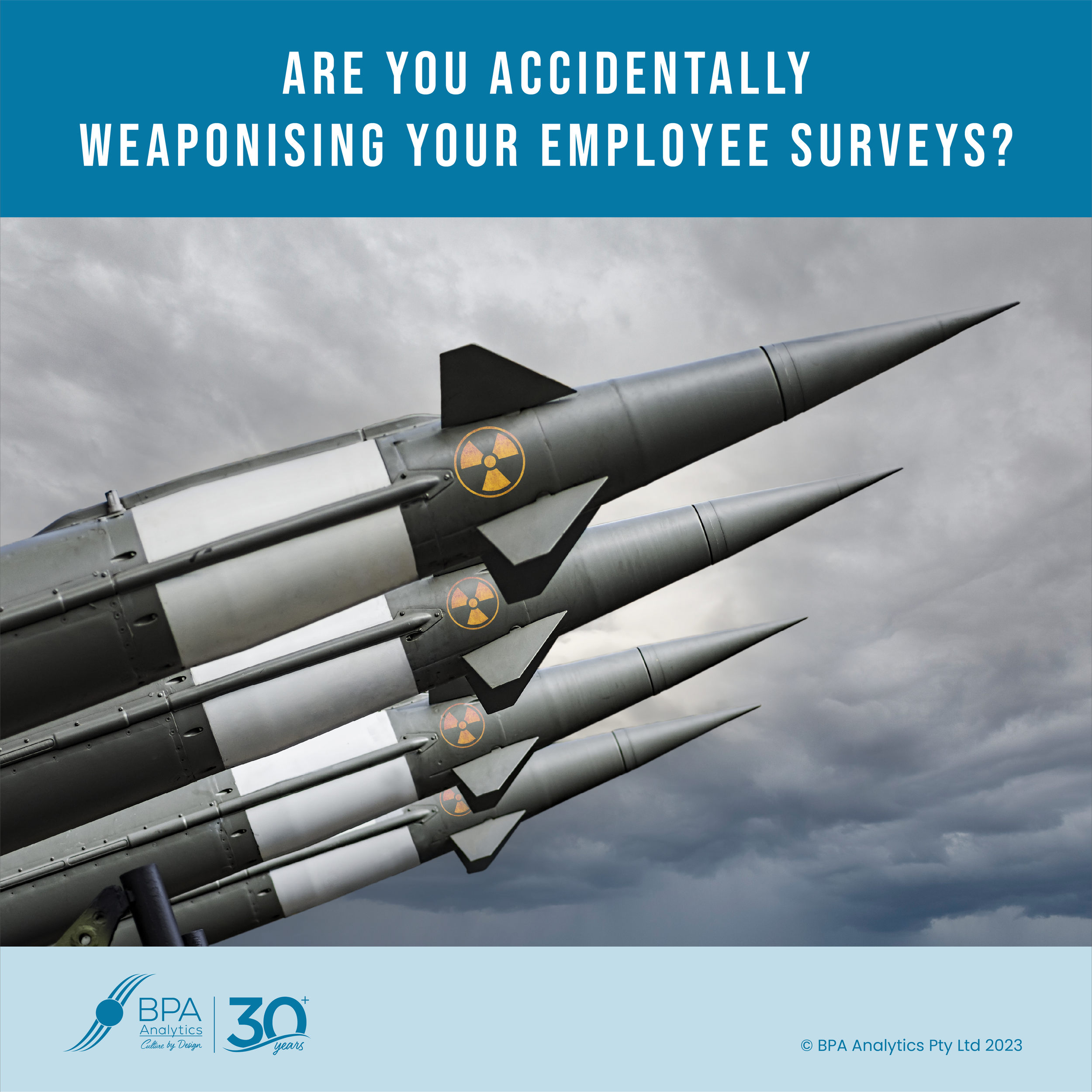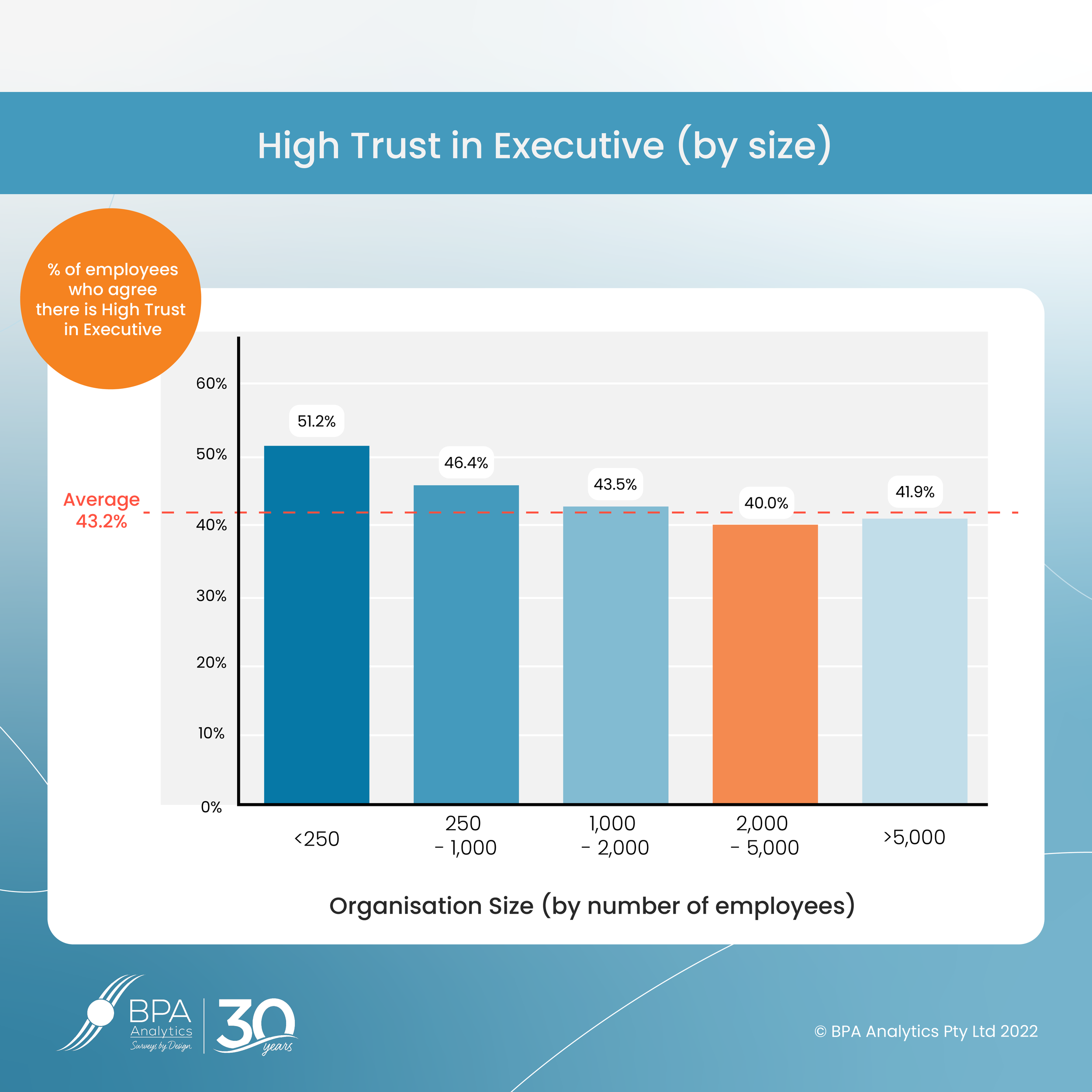Are you Accidentally Weaponising your Employee Surveys?
/I recently bumped into a former BPA alumni who now has a senior role in a major Australian company.
They commented how the Employee Survey run by that company had become weaponised against managers.
Thank you C. (you know who you are) for providing the trigger for this discussion.
Employee Surveys will often generate scorecards that measure employee engagement and behaviours in their reporting unit.
Many organisations will, as a normal practice, hold their managers accountable for these outcomes.
On this basis, employee engagement and behaviours will naturally fall into an accountability framework.
So far, so good.
Then what could cause Accountability to degenerate into Weaponisation?
To understand the mechanism at play here, let’s use the analogy of a school report card.
If a student gets a poor score for a particular subject, then what should the next step be?
Obviously, a teacher or parent will do at least 3 things.
Work out whether the student has enough talent to do the subject well. Some people excel at English but not a Chemistry, and vice versa.
Help the student to understand WHY they are getting a poor score.
Make available enough resources and time for the student to implement an Improvement Plan.
I’m sure that qualified teachers will see how over-simplified this example is, but it makes the key point.
Let’s apply this to an Employee Survey report.
A well-constructed Employee Survey scorecard will show which things are scoring above and below the norm, which are trending up or down, and will generally be good enough for goalsetting.
But a well-constructed reporting process will go another step. It will provide enough extra information for the manager to understand WHY employees are scoring the way they are.
Knowing the WHY will enable and empower managers to design Action Plans to remedy the root causes of any low scores.
And allocating enough resources and time will empower managers to get these Action Plans done successfully.
This enables the organisation to hold managers accountable for their employee survey results.
But if the reporting process fails to provide the manager with enough information to explain the WHY, or fails to allocate enough resources or time, then holding the manager accountable for improving something they don’t understand (or can’t physically do) crosses the boundary into weaponising the Employee Survey against the manager.
Remember the school report card example. How can a student improve their score if they don’t understand what is holding them back in the first place?
Similarly, how can a manager improve their Employee Survey scores if they don’t understand what is holding them back too?
In short, Accountability without Understanding becomes Weaponisation.
One way that BPA addresses this is to build manager understanding by using a balanced blend of number and text questions in the Employee Survey. Narrative text responses will often give managers key insights into the WHY behind their scorecards.











